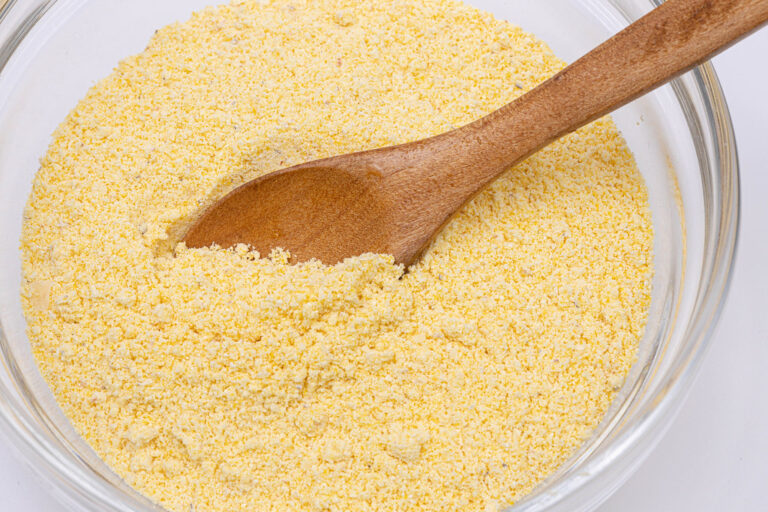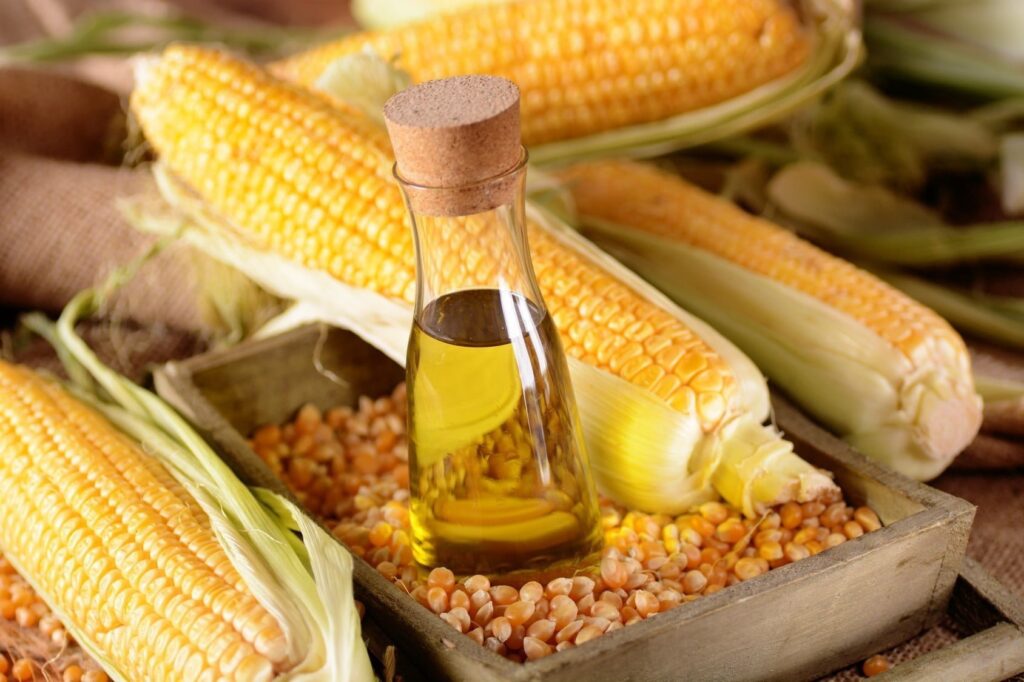Do you have a bottle of corn oil in your pantry? If not, you may be missing out on a versatile cooking ingredient.
Corn oil has a high smoke point, making it ideal for frying and sauteing. It also gives food a light, crispy texture.
In addition, corn oil is relatively flavorless, so that it wont overpower other ingredients in a dish.
Wondering how to use corn oil in your cooking? Here are some suggestions:
- For a light, crispy coating, fry chicken or fish in corn oil.
- Add corn oil to homemade salad dressings for a bit of extra body.
- Saute vegetables in corn oil for quick and easy cooking.
- Use corn oil in place of butter or other oils when baking.
Don’t worry if you don’t have any corn oil on hand.
There are several alternatives that will perform just as well.
Olive oil, avocado oil, coconut oil, canola oil, and sunflower oil are all excellent options.
Lets take a closer look at each one.
Contents
- What is Corn Oil?
- The 5 Best Substitutes for Corn Oil
- Conclusion
- FAQs
- What is a good substitute for corn oil?
- What oil is the same as corn oil?
- Can you use olive oil instead of corn oil in a cake?
- What can I use instead of canola or corn oil?
- What oil is healthier than corn oil?
- Can you replace corn oil with vegetable oil?
- Why avoid corn oil?
- Why not to use corn oil?
- Is corn oil and canola oil the same?
- Can I substitute butter for corn oil?
What is Corn Oil?

Corn oil is a type of vegetable oil that is extracted from the kernels of corn.
It is a popular cooking oil in many parts of the world and has a variety of uses.
Corn oil is thought to have originated in Mesoamerica, where it was used as both food and fuel.
The first recorded use of corn oil dates back to the 9th century when it was used as lamp oil in China.
In the 18th century, corn oil began to be used for culinary purposes in Europe.
It became increasingly popular in the United States during the 19th and 20th centuries.
This oil has a mild, neutral flavor and is oftentimes used for frying or baking.
It is also commonly used in salad dressings and as an ingredient in various processed foods.
In addition to its culinary uses, corn oil can also be used for cosmetic purposes, as it is an effective moisturizer.
It is also sometimes used as a biofuel. Corn oil is a versatile product with a long history.
Its versatility and neutral taste make it popular even now.
The 5 Best Substitutes for Corn Oil

If youre looking for healthier cooking oil, you might want to consider some of these substitutes for corn oil.
1 – Olive Oil
If youre looking for a healthier oil to use in your cooking, olive oil is a great option.
It has a distinctive flavor that can enhance the taste of many dishes, and it also offers a number of health benefits.
Olive oil is a good source of antioxidants and can help to protect against heart disease and cancer.
It also contains healthy fats that can help to improve cholesterol levels.
When substituting olive oil for corn oil in your cooking, keep in mind that it has a lower smoke point than corn oil.
This means that it will start to smoke and break down at a lower temperature.
As a result, its best to use olive oil for low or moderate-heat cooking methods.
2 – Avocado Oil
Avocados are delicious and healthy fruit that can be used in a variety of ways.
One lesser-known use for avocados is their oil.
Avocado oil has a light, nutty taste that makes it perfect for salad dressings and marinades.
It is also rich in healthy fats and vitamins, making it an excellent choice for those looking to improve their diet.
In addition, avocado oil has a high smoke point, making it ideal for cooking at high temperatures.
When substituting avocado oil for other oils, it is essential to keep this in mind.
Corn oil, for example, has a lower smoke point and can therefore be more challenging to cook with.
However, the taste and health benefits of avocado oil make it worth considering as a substitution for corn oil or other more processed oils.
3 – Coconut Oil
Coconut oil has a fraction of the saturated fat found in corn oil and is said to be composed of mostly good fats.
It also has a higher smoke point than corn oil, making it better for cooking at high temperatures.
Coconut oil is also said to have various health benefits, including improving skin and hair health, boosting cholesterol levels, and strengthening the immune system.
When substituting coconut oil for corn oil, it is essential to remember that it solidifies at cooler temperatures.
As a result, it may not be suitable for all recipes.
However, if you are looking for a healthier alternative to corn oil, coconut oil is definitely worth considering.
4 – Canola Oil
Canola oil is a type of vegetable oil that is extracted from the seeds of the canola plant.
Unlike other vegetable oils, canola oil has a relatively mild flavor and is low in saturated fat.
As a result, it is often used as cooking oil or in processed foods.
Canola oil also has a number of health benefits.
For example, it is a good source of omega-3 fatty acids, which have been linked to reduced inflammation and improved heart health.
Additionally, canola oil contains antioxidants that may help to protect against cancer.
Given its taste and health benefits, canola oil is a good substitution for corn oil.
However, it should be noted that canola oil has a lower smoke point than corn oil, so it is not suitable for high-heat cooking methods.
5 – Sunflower Oil
Sunflower oil has a light taste that some say is similar to olive oil, making it a good option for dressing salads or dipping bread.
Unlike olive oil, sunflower oil is high in polyunsaturated fats, which can help to lower cholesterol levels and reduce the risk of heart disease.
Additionally, sunflower oil is a good source of vitamin E, an antioxidant that helps to protect cells from damage.
When cooking at high temperatures, sunflower oil is a good choice because it has a smoke point similar to corn oil.
This means that it wont start to break down and release harmful chemicals when heated.
For these reasons, many people are choosing to substitute sunflower oil for corn oil in their cooking.
Conclusion
In conclusion, there are a number of oils that can be used as a substitute for corn oil.
Each oil has its own unique taste and health benefits that make it worth considering as a substitute.
When choosing an oil to use in your cooking, it is essential to keep in mind the smoke point of the oil.
In addition, you should also consider the flavor of the oil and whether it will be a good match for the recipe you are making.
With so many options available, there is sure to be an oil that can meet your needs.